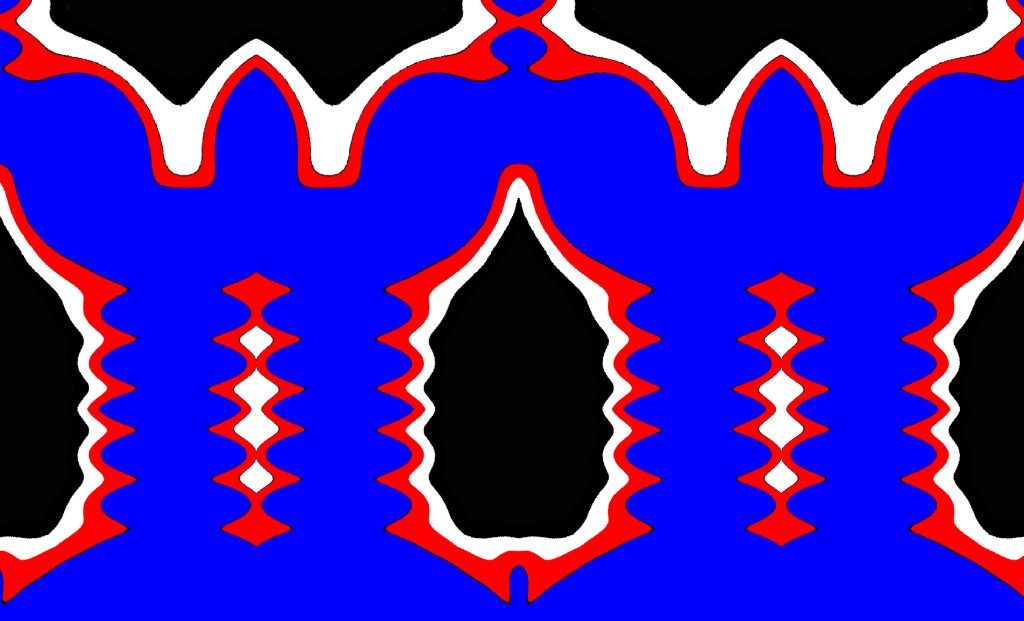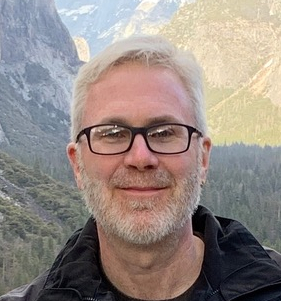
In the Ruins of a Tyrant’s Palace
1.
Leering like some grim old satyr, the porter
sallies from his lodge’s nicotine-ochre fug
to intercept your sauntering-by. Now money.
No map. Close soon. Paid, he resumes his morning
gameshows and grappa, while that blotched, forbidding face
lingers like the film (or was it TV?) avatar
of him who built this pile and at whose death
it burned, to endure sullenly as plundered hulk,
quarry for drystone, midden, picturesque view and,
these days, attraction.
2.
Sinkpipe guardrails, crudely
cemented-in, narrowly sluice tourists through
a fractured arch, past doorways agape to the sky
or gagged with rubble, around a lichenous portico
caging a fountain’s rust-caked stump, then through
to a vast bare hall where, beneath its then-unpunctured
roof, favorites preened in the fierce mood-field emitted
from its daised far end. Sunbeams drop and scatter
like shrapnel across bald pavingstones asizzle
in the dust of your passing. Off dank corridors, notched
with a pantheon of purged niches, room implicates room,
husked of all residue but his: blasphemous rants
scudding the bowed heads of trembling nobles, rituals
bizarre and defiling, annihilations roughed out
over maps noded like synapses. From this wrecked terrace
fatuous whims flurried forth to harry the wits
of a war-sick people; down these walls, continents
voided their curses like filthy pelting rain.
3.
In a poem,
the rustle of crumbling tile might summon a hush
as at his approach; the kite’s muffled caw, a flinch
as at the scrape of his grindstone voice. But you know
you know better. So scavenge a chunk of brick
for your desk, then pause for a last look over the cliff
whence were hurled,
shrieking,
those who displeased. Up here,
the cadence of waves whitening against the rocks
measures another tide unheard, and the white,
chevron-winged seabirds wheel and sweep for their prey
through the soundlessness of distance, as sundering as that
of fear.
 James McKee enjoys failing in his dogged attempts to keep pace with the unrelenting cultural onslaught of late-imperial Gotham. His debut poetry collection, The Stargazers, was published in the spring of 2020, and his poems have appeared or are forthcoming in New Ohio Review, New World Writing, The Ocotillo Review, Illuminations, CutBank, The Raintown Review, Flyway, Saranac Review, THINK, The Midwest Quarterly, Xavier Review, and elsewhere. His essay “Coming Back to Whitman” was published by ACM in January 2020. He spends his free time, when not writing or reading, traveling less than he would like and brooding more than he can help.
James McKee enjoys failing in his dogged attempts to keep pace with the unrelenting cultural onslaught of late-imperial Gotham. His debut poetry collection, The Stargazers, was published in the spring of 2020, and his poems have appeared or are forthcoming in New Ohio Review, New World Writing, The Ocotillo Review, Illuminations, CutBank, The Raintown Review, Flyway, Saranac Review, THINK, The Midwest Quarterly, Xavier Review, and elsewhere. His essay “Coming Back to Whitman” was published by ACM in January 2020. He spends his free time, when not writing or reading, traveling less than he would like and brooding more than he can help.
✶
 Edward Michael Supranowicz is the grandson of Irish and Russian/Ukrainian immigrants and he grew up on a small farm in Appalachia. He has a graduate background in painting and printmaking. Some of his artwork has recently or will soon appear in Fish Food, Streetlight, Straylight, Gravel, The Phoenix, and other journals. Edward is also a published poet. His other works featured in ACM are Lego Legs 1, Bitter Sweet Melody, Intersecting Intersections, and Melee.
Edward Michael Supranowicz is the grandson of Irish and Russian/Ukrainian immigrants and he grew up on a small farm in Appalachia. He has a graduate background in painting and printmaking. Some of his artwork has recently or will soon appear in Fish Food, Streetlight, Straylight, Gravel, The Phoenix, and other journals. Edward is also a published poet. His other works featured in ACM are Lego Legs 1, Bitter Sweet Melody, Intersecting Intersections, and Melee.